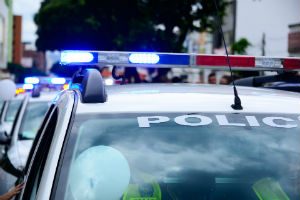By Deron Hamel
Epilepsy Ontario is working on a project to create an information package epilepsy support agencies across the province can use to educate police services and first responders on how to identify people who are having a non-convulsive seizure.
 The provincial agency is adapting a project created by Epilepsy Toronto to help build relationships with police forces to prevent people having non-convulsive seizures from being wrongly identified as under the influence of drugs or alcohol and being arrested for behaviour resulting from a postictal state.
The provincial agency is adapting a project created by Epilepsy Toronto to help build relationships with police forces to prevent people having non-convulsive seizures from being wrongly identified as under the influence of drugs or alcohol and being arrested for behaviour resulting from a postictal state.
“We are providing the material for the agencies to do outreach in their communities so they can connect with their local police forces and offer this training to them,” explains project manager Nikki Porter.
Some of the things police and first responders need to be mindful of when determining if a person is having a non-convulsive seizure include looking for Medic-Alert jewelry, checking for alcohol on the person’s breath or evidence of drug use, such as track marks on arms.
In preparation for this project, Epilepsy Ontario collected scores of stories from people living with a seizure disorder about their experiences with police and first responders.
One woman recounted how she woke up in a police station cell after having a sensory complex partial seizure outside a nightclub. She had no idea where she was and no memory of what had happened. Although she had not been drinking, police officers had arrested her for public intoxication.
“Sensory complex seizures are exhausting, terrifying and make you angry and emotionally upset when every single sense in your body takes over because of the misfires of the neurons in your brain go haywire – almost like when a power outage happens,” the woman writes. “When I am in what my family has called ‘seizure mode,’ I have some recall of what I was doing prior to the seizure and after. Everything in the middle is a blur.”
Fortunately, the woman’s public intoxication charge was thrown out and she received an apology from a justice of the peace after she and her mother went to the courthouse with the woman’s medical files.
While charges were dropped in this case, not everyone suffering a non-convulsive seizure has been so lucky, Porter says.
“One of the concerning things is that a number of the stories we received were about people being charged by the Crown,” Porter says. “When the people laying those charges are not aware that a person having one of these seizures doesn’t have control of their bodies or intention in their movements. (The Crown doesn’t) realize that they don’t have intent to commit the crime – which is one of the requirements for the act to be considered criminal.”
If you have feedback on this story, or have a story of your own that you would like to share, please contact the newsroom at 1-800-294-0051, ext. 23, or e-mail deron(at)axiomnews.com. You can also leave a comment below.






